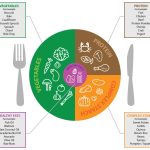Weight Loss: A Realistic Goal? Or Not? by Joan Kent, PhD
Have any of your friends ever told you they want to lose weight, even though you (and everyone else) think they look perfectly fine? What advice have you given them? Here’s the unconventional advice I gave a nutrition client when everyone was telling her the opposite.
The client, “Susan,” came to me complaining about being a size 6. She insisted she had to be a 4. Susan had been to several other nutritionists and fitness instructors and had also talked to her friends about this presumed problem. Professionals and friends alike had told her she looked great the way she was – it was true; she did – and just needed to develop a more realistic view of her body.
Some people, they told her, aren’t meant to be size 4, and she needed to accept that.
But I Took Her Seriously
Before making recommendations for a client, I always ask lots of questions. That’s what I did with Susan.
I took her unhappiness with her weight seriously, rather than dismissing it as a character flaw. I’m convinced that someone who feels uncomfortable at a given weight may in fact be tuning in to what her body’s telling her, not necessarily pining to look like her favorite fashion model.
It turned out that Susan’s eating was under control for most of the day. In the evenings, she often binged.
What made the strongest impression on me was the way Susan conducted the food journal review. When she showed me her log, she went through every single entry with me. She read the foods aloud and told me the story behind everything she’d eaten at each meal. I heard about her cravings, her reasons for each food selection, and more.
Obviously, Susan liked being in control. I decided that was the clue to this whole thing.
No one likes feeling out of control when it comes to food and eating. That has been the source of self-esteem issues in many clients I’ve worked with over the years. The main difference for Susan between sizes 4 and 6 was not her appearance, but what it took to be a 4. To stay a 4, she had to control her eating carefully. Yet now she was bingeing.
So. We addressed what Susan ate during the day that might have caused her to binge at night. If you’ve read my books or my articles, it won’t surprise you that the culprit seemed to be sugar. Susan’s night binges typically occurred after she’d eaten sugar during the day. It seemed intuitively clear that getting sugar out of Susan’s diet would give her back the control she really wanted, regardless of her weight.
Susan Got Back on Track
The results showed my hunch had been correct. Susan cleaned up her diet, and the new food plan didn’t trigger binges. That was a huge relief for her. She felt in control.
Yes, she lost a few pounds. Mainly, though, she stopped obsessing about getting down to a size 4.
Interestingly, Susan finally did what everyone had wanted her to do all along. She accepted her body.
If someone wants to lose weight, even if she looks pretty good, it may pay to consider her discomfort something beyond an unrealistic expectation or a silly obsession.
If you’re trying to lose weight and can’t, if you’re trying to stop bingeing and can’t, if you’re trying to clean up your diet and can’t, I would love to help you. Just visit LastResortNutrition.com and grab your free Make Me Healthy Now consult. Discover how easy it can be to gain control and move things forward so you look great and feel great. You got this!
Brought to you by Dr. Joan Kent, best-selling author of Stronger Than Sugar.



